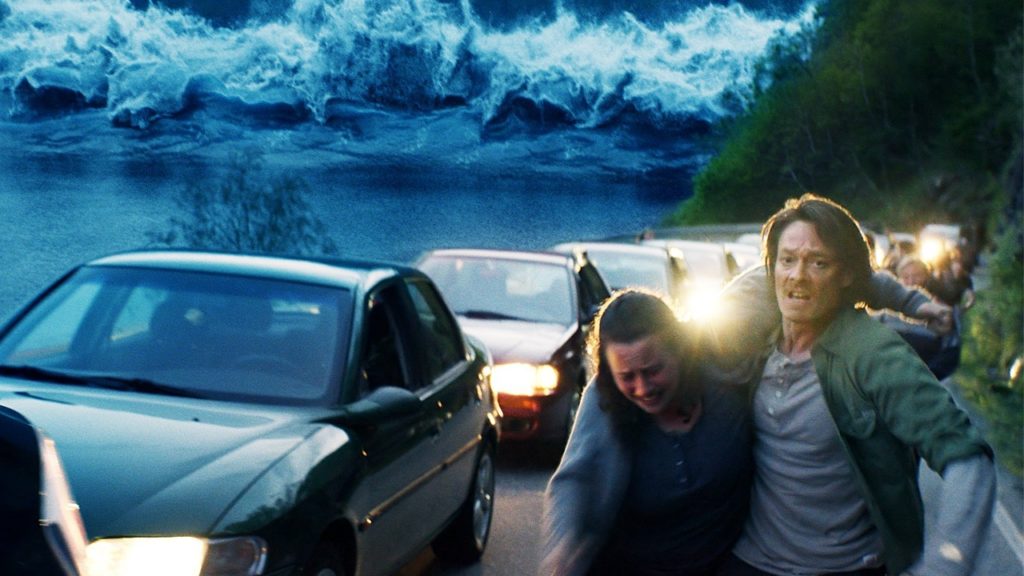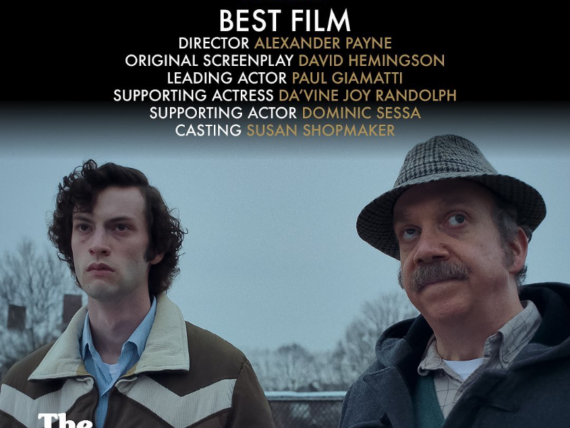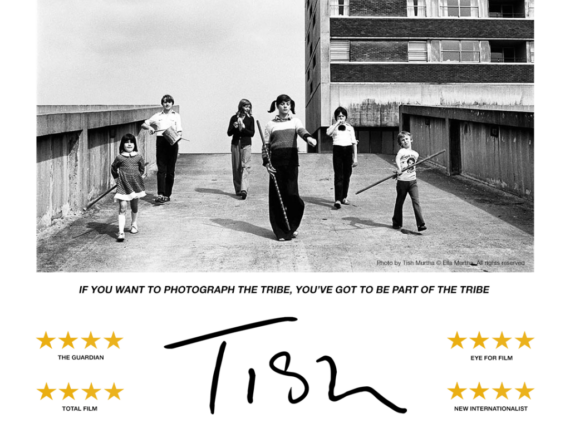The Wave – a review from Helen Tope
The Wave is screening in the Plymouth Arts Centre cinema until the 29th September.
The Wave can claim the unique honour of being “Norway’s first disaster movie”. A box-office smash on home turf, The Wave was also submitted as Norway’s entry for Best Foreign Language Film at the 2016 Academy Awards.
The film takes its inspiration from real-life events. The village of Tafjord was destroyed in 1934 by a tsunami, triggered by a rock-slide. Norway, thanks to its singular geography, is not only prone to such events – they are inevitable. The Wave asks the question- if such an event were to happen tomorrow, who would be ready?
The film’s screenwriters (John Kare Raake and Harald Rosenlow-Eeg) set the film in Geiranger Fjord, an idyllically beautiful part of the Norway Fjords. At the end of the fjord, is the small village of Geiranger; a favourite spot with tourists.
In Geiranger, a team of geologists monitor any seismic activity from the surrounding mountains. Their job is to monitor any movement that might suggest a rockslide is imminent. Any movement can trigger a tsunami; a catastrophic event for a town situated just above sea level. If the rockslide occurs, the geologists have the unenviable task of pressing an alarm, giving Grainger residents just ten minutes to get to higher ground.
At the centre of the film are Kristian and his family. Kristian is a 40-year-old geologist, who has worked with the geology team at the local monitoring station. Played by Kristoffer Joner (recently seen in The Revenant), Kristian is an expert in his field, with an encyclopaedic knowledge of his subject. Performed with great élan, a geologist may not seem the most obvious choice for leading man; but trust me – geologists: they’re the new sexy.
We meet Kristian’s family on the evening before they are due to move out of Geiranger. Kristian has a new job in the City, and it means big changes for the entire family. An uncomplicated village life will be swapped for the hustle and bustle of the urban landscape. The apartment they are about to move into is so fancy it doesn’t even need keys – just a smartphone app.
Kristian’s wife Idun (Ane Dahl Torp), and children Sondre (Jonas Hoff Oftebro and Julia (Edith Haagenrud-Sande), all have different takes on the move. While Idun is bursting with pride at Kristian’s new job, Julia is less enthusiastic. As night descends, Idun goes to finish her last shift, working at the local hotel. Taking Sondre with her, Kristian and Julia decide to spend one last night in their old house.
At his last day at the monitoring station, Kristian witnesses anomalies in the recording equipment. Unsure whether it’s a glitch or suggestive of something more sinister, his colleagues assure him it’s nothing. His former boss Arvid (played brilliantly by Fridtjov Saheim) dismisses Kristian’s fears. But as Kristian settles in for the night, he cannot sleep. Going back to check his research notes, his fears are confirmed. The anomalies are not from an expansion in the rocks, but a contraction – and a contraction indicates an avalanche. The residents at Geiranger have ten minutes to escape a monstrous 80 metre-high tsunami.
The build-up is underplayed so skilfully, that the horror, as the scale of the disaster unfolds, takes your breath away. It’s genuinely hair raising stuff. No gimmicks or cheap thrills: Hollywood, take note.
The denouement is achieved through solid characterisation; here the female lead is not an accessory, but a fully-fledged hero. Ane Dahl Torp plays her role to the hilt, and you will be cheering her on as she makes it clear that there’s no force of nature stronger than mother love. The Wave isn’t just a triumph of CGI; it works because it concentrates on the human aspect of the tragedy. The quality of the acting lifts the film, taking it to another level – and it makes for truly powerful drama.
In researching this film, it did become evident that not every critic loved it – but I’ll back the film that divides opinion over an out-and-out hit any day. The Wave isn’t a full-on Scandinavian angst-fest. It does borrow a little from the blockbuster rule-book, but it’s far from brainless. The feats of quiet heroism have the power to genuinely move; and the film’s resolution is left ambiguous. Not everyone gets their happy ending.
The idea that a film can entertain without patronising its audience still seems to be up for debate. But serious intent and heart-thumping action can co-exist on the screen; it just requires a strong grip on editorial balance. The Wave succeeds where other films have failed because it handles its subject matter with respect – it’s easy to scare cinema-goers, but making them care? Much trickier. Director Roar Uthang not only nails that balancing act, he proves that action movies can – and should – have a moral centre. It makes them far more interesting and crucially, it makes them relevant. The Wave is a disaster film that’s emphatically 21st century – and it’s a stunning achievement.
Helen Tope
@Scholar1977









Comments
No comment yet.